Address
304 North Cardinal
St. Dorchester Center, MA 02124
Work Hours
Monday to Friday: 7AM - 7PM
Weekend: 10AM - 5PM
Address
304 North Cardinal
St. Dorchester Center, MA 02124
Work Hours
Monday to Friday: 7AM - 7PM
Weekend: 10AM - 5PM

In the competitive landscape of the kitchen appliance industry, particularly within the realm of air fryers, establishing a reliable partnership with a factory is crucial for any brand seeking to succeed. The right factory not only ensures the production of high-quality products but also sets the stage for a profitable and lasting business relationship. Let’s delve into the nuances of how to secure such a partnership and ensure a winning collaboration.
In today’s fast-paced culinary world, the demand for high-quality kitchen appliances, especially air fryers, has surged. A reliable air fryer factory is not just a supplier; it’s a partner in your business journey. Here are several reasons why the importance of a reliable air fryer factory cannot be overstated.
Quality Assurance is Non-NegotiableThe cornerstone of any successful product is its quality. A reliable factory ensures that each air fryer that leaves their facility meets stringent quality standards. This means that the product you bring to market will deliver on its promises, satisfying consumers and building trust with your brand.
Consistency in ProductionConsistency is key in the manufacturing sector. A reliable air fryer factory maintains a consistent production process, which guarantees that every unit of the product is uniform in design, performance, and longevity. This consistency is crucial for brand loyalty and repeat business.
Cost-Effectiveness over TimeWhile it might be tempting to opt for the cheapest air fryer factory, the long-term costs can be much higher. A reliable factory understands the value of cost-effectiveness and offers competitive pricing without compromising on quality. This ensures that your business can offer a good price point while still making a profit.
Adaptability to Market TrendsThe kitchen appliance industry is dynamic, with trends constantly evolving. A reliable air fryer factory keeps a pulse on market changes and is quick to adapt. Whether it’s integrating new technologies or offering innovative designs, this adaptability ensures that your product remains relevant and competitive.
Sustainability and Ethical PracticesIn an era where sustainability and ethical practices are increasingly important, a reliable factory prioritizes these values. They use eco-friendly materials, minimize waste, and ensure fair labor practices. Partnering with such a factory not only aligns with consumer values but also enhances your brand’s reputation.
Customization and InnovationEvery business has unique needs, and a reliable air fryer factory understands this. They offer customization options, allowing you to tailor the air fryer to your target market’s preferences. Additionally, a factory that encourages innovation can help you create unique products that stand out in a crowded market.
Rapid Response to IssuesEven the best products can encounter issues. A reliable air fryer factory is proactive in addressing any problems that arise, whether it’s a manufacturing defect or customer feedback. Their quick response can mitigate damages to your brand and maintain customer satisfaction.
Diverse Product RangeA reliable factory typically offers a diverse range of air fryers, catering to different market segments. This allows you to expand your product line and cater to a wider audience. Having multiple options in your portfolio can be a significant competitive advantage.
Global Reach and DistributionIf your business aims to go global, a reliable air fryer factory should have a strong network for distribution. They can handle logistics, shipping, and customs regulations, ensuring that your products reach international markets efficiently.
After-Sales SupportCustomer support doesn’t end with the sale. A reliable factory provides after-sales support, including maintenance tips, customer service hotlines, and warranty services. This support helps maintain customer satisfaction and loyalty.
Intellectual Property ProtectionFor businesses investing in innovation, intellectual property protection is crucial. A reliable air fryer factory respects and protects intellectual property, ensuring that your designs and technologies are safeguarded from unauthorized use.
In conclusion, the importance of a reliable air fryer factory cannot be overstated. From quality assurance and cost-effectiveness to market adaptability and ethical practices, the right factory partner can significantly impact your business’s success. When choosing a factory, take the time to evaluate their track record, reputation, and commitment to excellence. It’s an investment in the future of your brand and your customers’ satisfaction.

When it comes to selecting a reliable air fryer factory, there are several key factors that can make the difference between a successful partnership and a costly disappointment. Here’s a breakdown of what truly sets a reliable air fryer factory apart from the rest:
Quality of Materials Used: The foundation of a high-quality air fryer lies in the materials chosen for its construction. A reliable factory will use premium-grade materials that are not only durable but also safe for food contact. This includes stainless steel for the housing, high-quality plastics for the components, and heat-resistant coatings to ensure long-term performance.
Innovative Design and Technology: A reliable air fryer factory invests in research and development to stay ahead of the curve. They should be able to offer innovative designs that enhance cooking efficiency, reduce energy consumption, and provide a healthier alternative to traditional frying methods. Advanced technology like smart controls and programmable settings are also indicators of a factory’s commitment to excellence.
Robust Quality Control Measures: The reliability of an air fryer is as much about the manufacturing process as it is about the raw materials. A factory that takes pride in its products will have stringent quality control measures in place at every stage of production. This includes regular inspections, testing for safety standards, and adherence to international quality certifications.
Certifications and Compliance: Look for air fryer factories that hold certifications from recognized bodies such as CE, FDA, and ETL. These certifications ensure that the products meet specific safety and health standards, giving you peace of mind that the factory is serious about quality and compliance.
Experience and Track Record: An established air fryer factory with a long history in the industry is more likely to be reliable. They have the experience to handle production challenges, understand market trends, and maintain a consistent level of quality. Check their track record with previous clients to gauge their reliability.
Customization and Flexibility: A reliable factory should be able to offer customization options to meet your specific product requirements. This includes the ability to modify design features, change specifications, or even develop new products from the ground up. Flexibility in production is also crucial, as it shows the factory can adapt to market demands.
Capacity and Scalability: Consider the factory’s production capacity and their ability to scale up if your business grows. A factory that can handle large orders and maintain quality is essential for businesses looking to expand or enter new markets.
Financial Stability: A reliable air fryer factory is financially stable, which is crucial for ensuring continuity of supply and maintaining high standards. This stability is often reflected in their financial statements, and you may want to inquire about their creditworthiness and financial history.
Supply Chain and Logistics: The reliability of an air fryer factory isn’t just about the product itself; it’s also about the efficiency of their supply chain and logistics. A factory with a well-established network for sourcing materials and distributing finished products can save you time and money in the long run.
Customer Support and Communication: A reliable factory understands the importance of strong customer support. They should be responsive to inquiries, provide clear communication, and offer post-sales support. This includes handling any warranty claims or product issues promptly.
Environmental Responsibility: In today’s market, environmental responsibility is a significant factor. A factory that practices sustainable manufacturing processes, uses eco-friendly materials, and minimizes waste is not only good for the planet but also shows a commitment to ethical business practices.
Innovation and Continuous Improvement: Finally, a reliable air fryer factory is always looking to innovate and improve. They should be investing in new technologies, exploring alternative materials, and seeking feedback from customers to make their products better over time.
By considering these factors, you can discern which air fryer factory is truly reliable and aligns with your business goals and values. Remember, the right factory partnership can be the key to your success in the competitive kitchen appliance market.
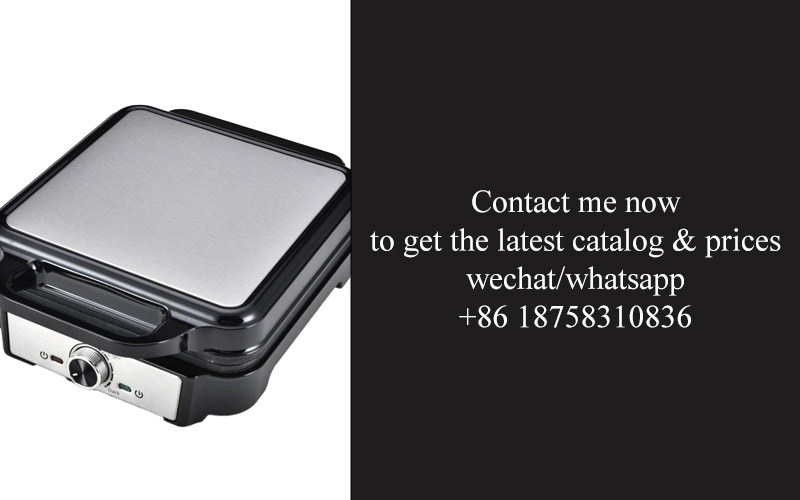
Navigating the vast sea of air fryer manufacturers can be daunting, but pinpointing a reliable factory is crucial for both quality and peace of mind. Here’s how to delve into the reputation and reviews of potential factories to ensure you’re making the right choice.
Understanding Online PresenceThe first step in researching a factory’s reputation is to assess its online presence. A robust website is a good starting point, showcasing the factory’s capabilities, product range, and contact information. Look for clear, professional images and detailed descriptions of the manufacturing process. A well-maintained website often reflects a company that values its image and customers.
Customer TestimonialsCustomer testimonials are invaluable for gauging a factory’s reliability. Check the factory’s own website for testimonials, but also venture out to third-party review platforms. Look for consistent praise regarding the quality of the air fryers, the efficiency of the production process, and the responsiveness of customer service. Pay attention to both the quantity and quality of reviews, as a high number of positive reviews can indicate a satisfied customer base.
Social Media EngagementSocial media is another avenue to explore for a factory’s reputation. Active profiles with regular updates suggest a company that is engaged with its customers and industry. Look for engagement with followers, responses to inquiries, and any discussions about product improvements or industry trends. This can give you insights into how the factory interacts with its audience and whether it values community feedback.
Networking with Industry ProfessionalsNetworking with other professionals in the kitchen appliance industry can provide insider insights into factory reliability. Attend trade shows, seminars, or industry gatherings where you can speak with suppliers, distributors, and even end-users who may have worked directly with the factories in question. These conversations can offer real-world experiences and recommendations based on past interactions.
Checking for AccreditationsAccreditations are a significant indicator of a factory’s commitment to quality and standards. Look for certifications such as ISO 9001 for quality management, ISO 14001 for environmental management, or other relevant industry-specific certifications. These accreditations demonstrate that the factory adheres to international standards and is subject to regular audits to maintain its status.
Analyzing Case Studies and ProjectsCase studies and past projects can provide a comprehensive look at a factory’s capabilities and reliability. Review these to see if the factory has a history of successful collaborations with well-known brands or retailers. Look for evidence of complex project management, adherence to strict timelines, and the ability to handle large orders or customized products.
Contacting Previous ClientsDirectly contacting previous clients is one of the most effective ways to gauge a factory’s reliability. Reach out to the factory for a list of references or ask for permission to speak with clients directly. Inquire about their experience with the factory, the quality of the products, the communication process, and any challenges they faced. These conversations can offer a candid perspective that is not always visible in online reviews.
Monitoring News and Press ReleasesKeep an eye on the news and press releases related to the factory. Look for any mentions of expansions, new technology implementations, or awards that highlight the factory’s achievements. A factory that is active in the media is often seen as a leader in its field and may be more likely to maintain high standards.
Analyzing Response to ChallengesLastly, consider how the factory has responded to any challenges or criticisms. Has it made efforts to rectify issues raised by customers or industry watchdogs? A factory that takes accountability and works to improve its processes is likely to be more reliable in the long run.
By thoroughly researching a factory’s reputation and reviews through these various channels, you can build a comprehensive picture of its reliability and decide with confidence whether it’s the right partner for your air fryer manufacturing needs.
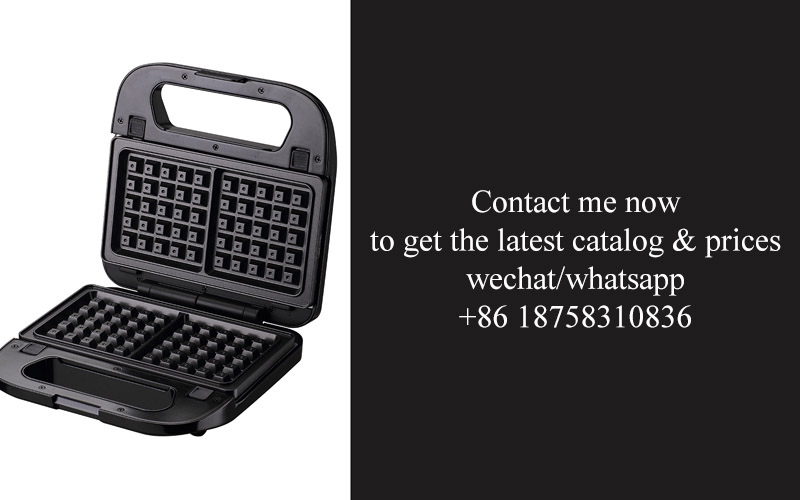
When it comes to selecting a reliable air fryer factory, the certifications and quality standards they adhere to are paramount. These credentials are not just pieces of paper; they are the pillars upon which the reputation and integrity of a factory rest. Here’s a closer look at why these certifications matter and how to ensure they meet the highest standards.
Understanding Industry-Relevant Certifications: The first step in verifying a factory’s reliability is to understand the certifications that are relevant to the air fryer industry. This includes certifications like ISO 9001 for quality management, ISO 14001 for environmental management, and CE marking for compliance with European safety standards. These certifications are globally recognized and demonstrate a factory’s commitment to meeting international standards.
Quality Control Processes: A reliable air fryer factory will have stringent quality control processes in place. Look for certifications that specifically address these processes, such as ISO/TS 16949 for the automotive industry, which is often adopted by electronics manufacturers. These certifications ensure that the factory follows a structured approach to quality control, from design and development to production and delivery.
Safety Standards: Safety is a critical aspect of air fryer manufacturing. Certifications like UL (Underwriters Laboratories) and TÜV (Technical Inspection Association) provide assurance that the products meet safety requirements. These organizations test for electrical safety, fire resistance, and user safety, which are crucial for consumer confidence.
Environmental Compliance: With the growing emphasis on sustainability, it’s important to check if the factory holds certifications that demonstrate environmental responsibility. Certifications like FSC (Forest Stewardship Council) for sustainable forestry and ENERGY STAR for energy efficiency show that the factory is committed to reducing its environmental impact.
Material Quality Assurance: The materials used in air fryer manufacturing can greatly affect the lifespan and performance of the product. Look for certifications that guarantee the quality of materials, such as RoHS (Restriction of Hazardous Substances), which restricts the use of certain hazardous substances in electrical and electronic equipment.
Regular Audits and Inspections: Certified factories undergo regular audits and inspections to maintain their certifications. This means that their processes are continuously monitored and improved. It’s worth inquiring about the frequency and scope of these audits to ensure ongoing compliance.
Certification Bodies: The credibility of the certification body itself is crucial. Reputable bodies like the International Organization for Standardization (ISO) and the American National Standards Institute (ANSI) are known for their rigorous standards. Avoid factories that have certifications from lesser-known or non-recognized bodies.
Product Testing and Compliance Reports: A reliable factory should be able to provide detailed reports of product testing. These reports should show that the air fryers meet all necessary safety and quality standards. Ask for copies of these reports to review the specific tests conducted and the results achieved.
Clientele and Partnerships: The types of clients and partnerships a factory has can also indicate its reliability. Factories that supply to well-known brands and retailers are likely to adhere to higher standards due to the scrutiny they face from these customers.
Feedback from Existing Clients: Finally, gather feedback from other clients who have worked with the factory. Word of mouth can be a powerful indicator of the factory’s commitment to quality and adherence to certifications.
In conclusion, checking certifications and quality standards is a meticulous process that requires thorough research and attention to detail. By verifying these credentials, you can be confident that the air fryer factory you choose is committed to producing high-quality, safe, and environmentally responsible products.

Navigating through the vast landscape of air fryer factories, it’s crucial to understand their production capabilities and scale. This knowledge ensures that the factory you choose can meet your specific needs, whether it’s a small batch for a new product launch or a large-scale production run for a well-established brand. Here’s what to look for in terms of production capabilities and scale:
The Range of ProductsA reliable air fryer factory should be capable of producing a wide range of air fryer models. This includes different sizes, features, and functionalities. From countertop models to commercial-grade fryers, the factory’s product line should cater to various market segments. It’s essential to check if they offer custom designs or the ability to incorporate unique features that set your product apart from the competition.
Machines and EquipmentThe machinery and equipment used in the production process can significantly impact the quality and efficiency of the air fryers. A factory that invests in state-of-the-art machinery is likely to produce high-quality products. Look for advanced assembly lines, automated welding systems, and precision cutting tools. These elements indicate a factory’s commitment to quality and productivity.
Capacity and Turnaround TimeUnderstanding the factory’s production capacity is vital for planning your orders. A factory with a high output capacity can handle large orders promptly. Ask about their monthly production volume and how they manage peak seasons. Additionally, inquire about their turnaround time for different order sizes. A shorter turnaround time can be a deciding factor, especially if you’re working with a tight product launch timeline.
Quality Control MeasuresA reliable air fryer factory should have stringent quality control measures in place. This includes regular inspections, testing, and adherence to international quality standards. Look for information on their quality control processes, such as in-process checks, final inspections, and certification by recognized bodies. A factory that takes pride in its quality control is less likely to deliver defective products.
Supply Chain and Raw MaterialsThe scale of a factory’s supply chain can reflect its reliability. A robust supply chain ensures a steady supply of raw materials, reducing the risk of production delays. Check if the factory sources its components from reputable suppliers and if they have the capacity to handle fluctuations in the supply of raw materials. A well-established supply chain can also lead to better pricing and more sustainable sourcing practices.
Research and DevelopmentA factory that invests in research and development (R&D) is likely to stay ahead of the curve in terms of innovation. Look for evidence of R&D initiatives, such as a dedicated R&D team, partnerships with universities, or a history of patent filings. These factors suggest a commitment to continuous improvement and the ability to adapt to market trends.
Scalability for Future GrowthAs your business grows, you’ll need a factory that can scale its production to meet increased demand. Ask about the factory’s expansion plans and whether they have the infrastructure to handle larger orders in the future. A factory that can easily upscale its production capabilities is a valuable partner for long-term business success.
Environmental and Social ResponsibilityIn today’s market, environmental and social responsibility are increasingly important. A factory that prioritizes sustainability and ethical practices can be a good choice for your brand. Look for certifications such as ISO 14001 for environmental management or ISO 26000 for social responsibility. These certifications indicate a commitment to minimizing environmental impact and ensuring fair labor practices.
Customer Success StoriesFinally, consider reaching out to other clients who have worked with the factory. Ask for references and case studies that demonstrate the factory’s ability to deliver on promises. Customer success stories can provide valuable insights into the factory’s production capabilities, communication style, and overall reliability.
By thoroughly examining these aspects of an air fryer factory’s production capabilities and scale, you can make a well-informed decision that aligns with your business goals and ensures a successful partnership.
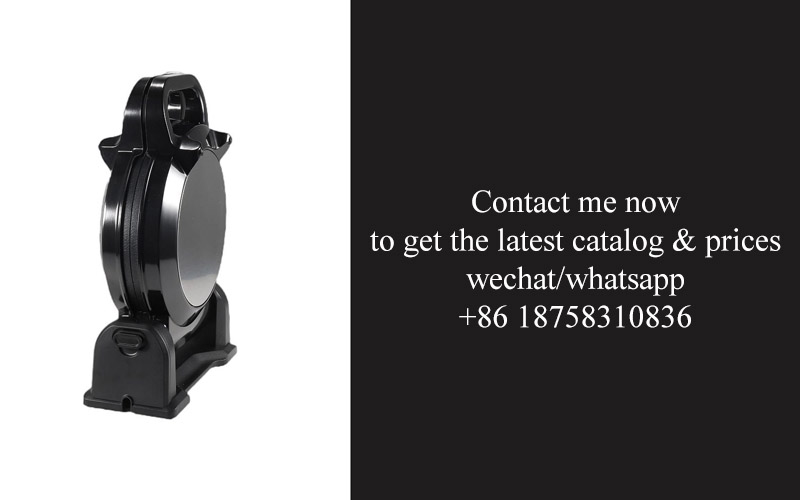
When it comes to selecting a reliable air fryer factory, inspecting product samples and ensuring stringent quality control measures are in place is paramount. This process involves a meticulous examination of various aspects, from the raw materials to the final product, to guarantee that the air fryers meet the highest standards of quality and safety. Here’s a closer look at what this inspection entails:
The first step in this process is to request product samples from the factory. These samples serve as a tangible representation of the factory’s capabilities and the consistency of their products. Examining the samples closely can reveal several key factors:
Design and Build Quality: A high-quality air fryer will have clean lines, precise assembly, and no visible defects. The materials used should be durable and the finish should be smooth, indicating a focus on aesthetics and functionality.
Functionality: Test the air fryer to see if it operates as advertised. The heating element should heat up quickly, and the cooking process should be even and efficient. The control panel should be intuitive, and the device should have the expected features and settings.
Safety Features: Check for any safety features such as automatic shut-off, non-slip bases, and cool-to-the-touch handles. These features are crucial for ensuring user safety.
Once the initial visual and functional checks are completed, it’s time to delve deeper into the quality control process:
Material Inspection: The materials used in the air fryer should be of the highest quality. This includes the exterior plastic, interior coating, and any metal components. High-grade materials not only enhance the longevity of the product but also its performance.
Manufacturing Process: The factory should be able to provide detailed information about their manufacturing process. This includes how the parts are assembled, how the air fryer is tested for performance, and how any defects are addressed.
Certifications and Standards: Reputable air fryer factories will have certifications from recognized bodies such as CE, FDA, and UL. These certifications ensure that the product complies with international safety and quality standards.
Consistency in Production: The factory should be able to demonstrate consistency in their production. This means that every batch of air fryers should meet the same high standards, regardless of the quantity produced.
Customer Feedback: Look for any customer feedback on the product samples. Online reviews, social media mentions, and direct customer testimonials can provide insights into the real-world performance of the air fryers.
Warranty and After-Sales Service: A reliable factory will offer a comprehensive warranty and after-sales service. This shows that they stand behind their product and are committed to customer satisfaction.
In addition to the above, it’s important to consider the following during the inspection:
Factory Tour: Visiting the factory can give you a firsthand look at the production environment. A well-organized, clean, and modern factory is often a good indicator of a company’s commitment to quality.
In-House Testing Facilities: A reputable factory will have in-house testing facilities to ensure that each product meets the required specifications. This can include drop tests, endurance tests, and safety checks.
Supply Chain Transparency: Understanding the source of the materials and components is crucial. A transparent supply chain reduces the risk of using substandard or unsafe materials.
Customization Capabilities: If you’re looking for a customized air fryer, ensure that the factory has the capability to modify the design and specifications according to your needs.
By thoroughly inspecting product samples and understanding the quality control measures in place, you can make an informed decision about the reliability of an air fryer factory. This due diligence will not only protect your investment but also ensure that you deliver a high-quality product to your customers.
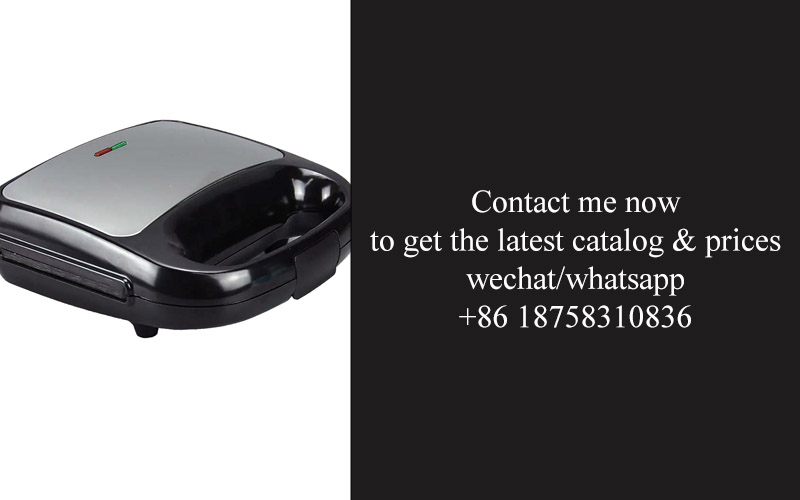
Navigating the maze of suppliers, finding a factory that offers reliable support and exceptional customer service is crucial for any business looking to enter the kitchen appliances market. Here are some key aspects to consider when evaluating these critical factors:
The Relevance of Factory SupportUnderstanding the level of support a factory provides is vital. This includes everything from technical assistance to after-sales service. A factory that is invested in its customers will typically offer:
A responsive team: Look for a factory with a dedicated support team that is readily available to address any inquiries or issues that may arise during the production process or post-delivery.
Technical expertise: The factory should have knowledgeable staff who can guide you through the nuances of air fryer design, function, and usage, ensuring that your product meets the highest standards.
Customization capabilities: A factory that prides itself on support will likely be willing to accommodate specific design requests or modifications to the product to better suit your market needs.
Customer Service ChroniclesCustomer service is not just about resolving issues but also about creating a seamless and pleasant experience from the outset. Here’s what to look for:
Initial contact: How the factory responds to your initial inquiries can be a telling sign of their commitment to customer service. Prompt and professional responses are a good indicator of future interactions.
Communication: Regular updates on the status of your order, clear communication about any potential delays, and a willingness to discuss and address concerns are essential.
After-sales care: The quality of customer service doesn’t end with the delivery of the product. A reliable factory will offer support for the lifespan of the product, including handling returns, exchanges, and warranty claims.
The Importance of Quick TurnaroundsA factory that can deliver products quickly can significantly impact your business operations. Consider:
Production capacity: A factory with a high production capacity can ensure timely delivery, even during peak seasons or when you have urgent orders.
Inventory management: A factory that efficiently manages its inventory can minimize lead times and ensure that products are available when you need them.
Flexibility: The ability to scale up or down production quickly based on demand is crucial. A factory that can adapt to fluctuations in your business requirements will be more reliable in the long run.
Training and DevelopmentThe dedication of a factory to ongoing training and development of its staff reflects its commitment to quality and customer satisfaction:
Skilled workforce: A factory that invests in training its employees will likely have a more skilled and knowledgeable team, which can translate to higher quality products and better customer service.
Continuous improvement: Factories that embrace a culture of continuous improvement are more likely to stay ahead of the curve, adopting new technologies and processes to enhance the product and service quality.
Feedback and ImprovementFinally, a factory’s willingness to accept feedback and make improvements is a strong indicator of its reliability:
Openness to criticism: A factory that actively seeks and responds to customer feedback demonstrates a commitment to excellence and a desire to improve its products and services.
Problem-solving: The way a factory handles complaints and challenges can reveal its ability to navigate difficult situations and maintain a positive relationship with its clients.
Follow-through: Ensuring that promised changes are made and followed through with is critical. A reliable factory will not only promise improvements but will also deliver on those promises.
In summary, when evaluating factory support and customer service, it’s essential to look beyond just the product and consider the entire experience—from initial contact to ongoing support and feedback mechanisms. A factory that embodies these qualities will be a steadfast partner in your journey to success in the air fryer industry.
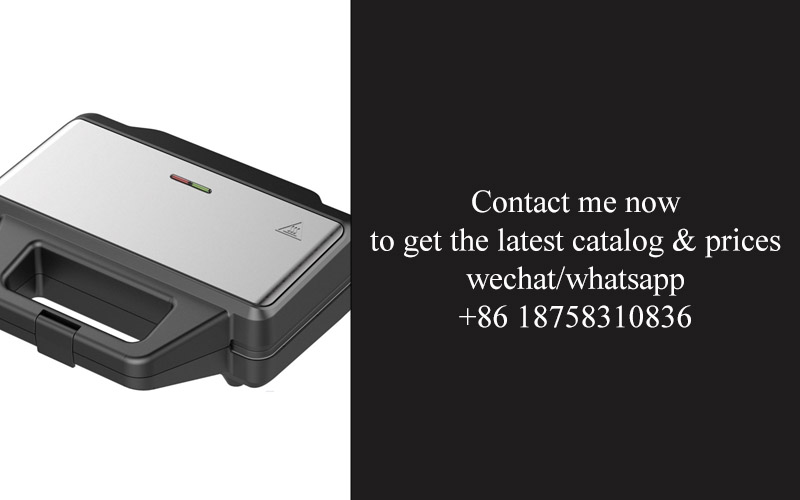
Navigating the complexities of establishing a partnership with an air fryer factory can be a delicate balance between securing the best deal and ensuring the quality and reliability of the products. Here’s how to navigate the negotiation and finalization process:
The art of negotiation is all about finding common ground. Start by clearly articulating your expectations, including the quality standards, delivery timelines, and pricing structures you’re looking for. Be prepared to discuss the minimum order quantities (MOQs) and any potential volume discounts that might be available. Remember, it’s not just about getting the best price; it’s about ensuring the factory can meet your business needs consistently.
Understanding the factory’s negotiation stance is crucial. Are they flexible on terms, or do they have a set approach? Knowing this can help you adapt your strategy. For instance, if the factory is rigid on price, you might need to negotiate on other aspects such as delivery times or payment terms.
When it comes to finalizing the partnership, it’s essential to have a comprehensive contract that outlines all the agreed-upon terms. This contract should cover everything from the specifications of the air fryers to the warranty period, return policies, and intellectual property rights. It’s not just about the immediate transaction; it’s about setting the stage for a long-term relationship.
Before signing on the dotted line, ensure that the contract includes clauses that protect your interests. This might include non-disclosure agreements to safeguard your intellectual property, clauses that allow for quality disputes to be resolved through arbitration, and clear language about what constitutes a breach of contract.
In the world of international trade, language barriers can sometimes lead to misunderstandings. Engage a translator or legal expert who can help clarify any ambiguities and ensure that both parties fully understand the contract’s terms. Misinterpretations can lead to costly disputes down the line.
The payment terms are a critical aspect of the negotiation. Discuss various payment methods, such as letters of credit, escrow services, or direct bank transfers. Each method has its own set of risks and benefits, so it’s important to choose one that aligns with both your and the factory’s risk tolerance.
Once the contract is drafted, take the time to review it thoroughly. Look for any clauses that might be one-sided or that you feel could be improved. Don’t hesitate to ask for revisions if necessary. This is not just about getting a good deal; it’s about building a solid foundation for future business.
It’s also wise to negotiate the terms of any post-contract support. This includes how the factory will handle after-sales service, including any warranty claims or technical support. A factory that is committed to customer satisfaction will be more likely to provide ongoing support, which can be a significant advantage for your business.
Another aspect to consider is the logistics of the partnership. Discuss shipping schedules, potential delays, and how any issues with transportation will be handled. A reliable factory will have robust logistics in place to ensure that your products are delivered on time and in good condition.
Don’t underestimate the value of a trial run or pilot project before fully committing to a long-term partnership. This can give you a firsthand look at the factory’s capabilities and their ability to meet your requirements. It’s a practical way to gauge their performance and the quality of their products.
In the final stages of negotiation, it’s important to maintain a professional demeanor. Even if there are disagreements, keep the conversation focused on finding solutions rather than assigning blame. Building a rapport with the factory representatives can go a long way in smoothing over any potential disputes.
Remember that the goal of the negotiation is to create a win-win situation. You want to secure the best possible terms for your business, but the factory also has its own interests to protect. Finding that sweet spot where both parties feel they’ve gained something valuable is key to finalizing a successful factory partnership.
In conclusion, negotiating and finalizing a factory partnership involves careful planning, thorough contract review, and effective communication. It’s about ensuring that the relationship is built on mutual respect and clear understanding of expectations. With the right approach, you can establish a solid foundation for a productive and profitable partnership.

Navigating the complexities of a factory partnership is akin to crafting a masterpiece—a collaboration that must harmonize precision, creativity, and reliability. The bottom line in ensuring a winning collaboration lies in several critical factors that can make or break the relationship. Here’s a closer look at what these elements entail:
Understanding the factory’s production timeline is crucial. Timeliness is key in the world of business, and delays can lead to missed opportunities. Whether it’s the lead time for production or the delivery of goods, knowing how the factory manages its schedule can be a game-changer. It’s essential to inquire about their standard production times, their ability to handle rush orders, and their track record in meeting deadlines.
Communication is the lifeblood of any successful partnership. It’s not just about regular updates or emails; it’s about fostering an environment where both parties feel heard and understood. This means the factory should be transparent about their processes, challenges, and solutions. Regular check-ins, clear and concise communication, and a willingness to adapt to changes are all indicators of a factory that values its partnership.
The cost of production can vary widely, and understanding the factory’s pricing structure is vital. This includes not just the unit cost but also any hidden fees or costs associated with the manufacturing process. It’s important to compare these costs with industry standards and to negotiate a fair price that aligns with your business model. Look for factories that offer competitive pricing without compromising on quality.
Quality assurance is non-negotiable. The factory should have a robust quality control system in place, from the raw materials stage to the final product. This includes regular inspections, adherence to international standards, and a commitment to continuous improvement. Request details about their quality control protocols and review any certifications they hold to ensure they meet the highest standards.
Flexibility is key in a changing market. A factory that can adapt to new trends, customer demands, and supply chain disruptions is invaluable. This could mean the ability to switch up product designs, explore new materials, or adjust production volume quickly. A factory that can pivot with the market can be a strategic asset to your business.
Intellectual property protection is another critical aspect. Ensure that the factory has measures in place to protect your designs and innovations. This includes signed agreements that outline ownership rights and confidentiality clauses. You want to work with a factory that respects intellectual property and understands the importance of maintaining your brand’s integrity.
Financial stability is a cornerstone of a reliable partnership. Investigate the factory’s financial health, including their credit history and payment terms. A factory with a solid financial foundation is more likely to honor contracts and deliver on promises. Be wary of factories that require large upfront payments or have a history of financial instability.
Long-term partnerships are built on mutual trust and shared goals. Consider the factory’s willingness to invest in the relationship. This could be through offering discounts for bulk orders, providing training for your team, or collaborating on new product development. A factory that sees the potential for a lasting relationship is more likely to go the extra mile for you.
Lastly, don’t underestimate the importance of cultural fit. Working with a factory that shares your values and business ethos can lead to a more cohesive and productive partnership. Consider the factory’s approach to sustainability, corporate social responsibility, and ethical business practices. A shared commitment to these principles can strengthen the bond between your businesses.
In essence, a winning collaboration is the result of thorough research, clear communication, and a mutual understanding of each other’s needs and expectations. It’s about striking the right balance between cost, quality, and service, and ensuring that both parties are invested in the success of the partnership. By carefully evaluating these factors, you can forge a relationship that stands the test of time and delivers results that benefit both your business and the factory’s.